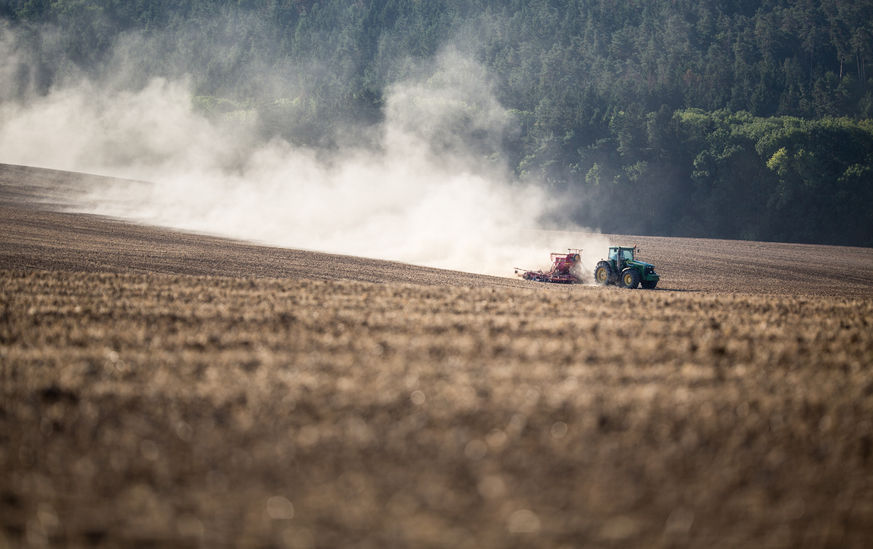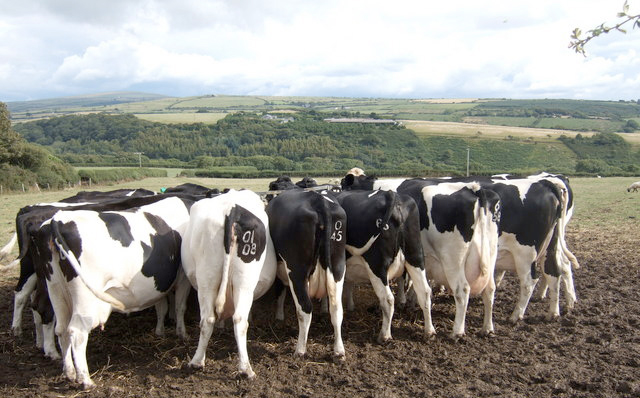CLA warns of rural catastrophe if Brexit talks fail

The Country Land and Business Association (CLA) has warned of a catastrophe for the rural economy unless Government negotiators secure the right Brexit deal with the remaining 27 members of the European Union.
The CLA, which represents owners of land, property and businesses in rural England and Wales, is preparing a series of reports on the challenges facing the country's rural community in the wake of the referendum decision to withdraw from the European union.
The first report looks at the issue of trade, and the CLA says that the priority for the Government must be to secure a free trade agreement with the EU.
"The major threat to the UK rural economy would be a situation where the UK removes itself from the EU without a preferential trade deal agreed while at the same time removing all tariff barriers for exporters from anywhere in the world to sell their goods into the UK market," say the report's authors.
"This approach would be catastrophic for the rural economy and have dramatic and immediate consequences for the countryside, with many farmers unable to compete."
Major player
The CLA says that the food sector in the United Kingdom is worth more than £100 billion each year to the country's economy.
The food sector employs 3.8 million people - 400,000 of them in farming - making the industry not just a major part of the rural economy but also the national economy.
The industry currently benefits from tariff-free access to a market of 500 million people, it says.
"The UK’s agriculture and food sector has operated behind high tariff walls within the EU for decades. The EU is one of the world’s major food trading blocs," say the authors of the report. However, they say that securing free trade with the EU following the UK's departure from the bloc may not be simple.
"Historically the European Union has had a protectionist impulse when considering free trade agreements with non-members for food."

They say that agriculture is often a difficult area on which to reach agreement or is traded off to ensure better access for other sectors in free trade negotiations around the world.
'Carefully considered approach'
The UK Government is hoping to be able to agree a future free trade deal with the EU soon, although EU negotiators say that the terms of the UK's divorce must be settled before talks on future trade.
The CLA says that, if agreement on a future trade deal cannot be agreed in two years, then a transitional arrangement should be put in place until one can be agreed.
"As the UK repositions outside of the single market, a carefully considered and staggered approach must be taken to allow businesses the time to adapt," says the CLA in the report.
"It may be possible to secure a permanent deal that takes effect within the next two years, and this should be the aim of the negotiations, but if it cannot be achieved, both sides must ensure transitional arrangements are put in place well in advance of Brexit."
The report's authors say: "How the UK farms, processes and markets its food has been fundamentally shaped by decades of serving an overwhelmingly domestic and European market and, in 2016, over 70 per cent of the UK’s food exports went to the EU.
"This, in theory, will make it easier, but also hugely important, to agree a free trade agreement with the EU for food and farming that secures tariff free and non-tariff barrier free access for UK farmers to the single market.
"Getting non-tariff barrier issues right to ensure trade can continue unhindered post-Brexit is just as important as tariff levels, while continued UK involvement in EU research programmes for agriculture is also vital," they say.
"If the UK is unable to negotiate an advantageous free trade deal with the EU for food, the consequences for the UK food and farming sector will be severe. With no preferential access to the single market, the food and farming sector will have to rely on trading under World Trade Organisation (WTO) rules.
"This will significantly reduce the competitiveness of the sector and have severe knock on effects for the wider rural economy, which is underpinned by agriculture."
Continue without interruption
The report says that the UK negotiators must ensure that trade between the UK and EU continues without interruption.
"There is an understandable desire to ensure food prices do not rise as the UK leaves the EU."
The only viable way to secure this is with the right UK/EU free trade deal in place, it says.
The CLA, whose members own or manage about half of the rural land in England and Wales, intends to publish a series of reports during 2017 on the issues surrounding the UK's decision to leave the European Union and the implications of what happens once we have withdrawn from the bloc. The series is being published under the title, 'New Opportunities.'
The CLA says that next two years will be crucial in establishing a new relationship with the remaining members of the EU, and it is setting out its own red lines for the UK's Brexit negotiators.








